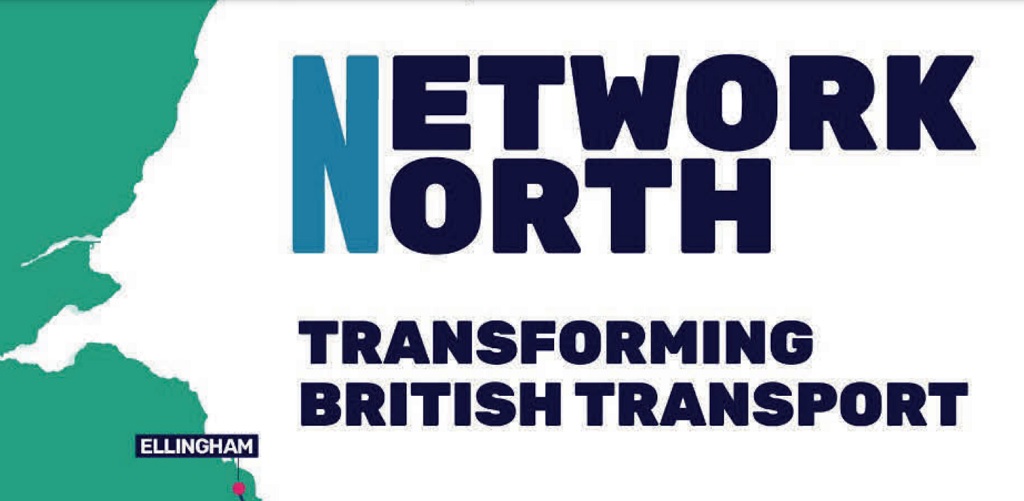What is Network North?

HS2’s demise has led to the birth of another set of promised transportation transformations, dubbed “Network North” by Prime Minister Rishi Sunak during his Conservative Party Conference speech[1] on Wednesday.
Sunak pledged to spend “every penny” from the shelved £36bn Birmingham-Manchester leg of the high-speed rail line on this new endeavour. Network North is set to include investment in road infrastructure, proposals to electrify and improve rail lines across the North, and support for bus service improvements.
Sunak described the schemes in Network North as “the projects that will make a real difference across our nation” in his speech.
Northern leaders did not seem impressed by the Network North proposals as outlined by Sunak on Wednesday. Greater Manchester Mayor Andy Burnham described Network North as “a coherent plan that has been broken up and scattered around”.
Manchester City Council Leader Cllr Bev Craig said she would work with the government on Network North, but added that much of what she had heard during the Prime Minister’s speech was “rehashed”.
“Much of it is insinuations of plans that are already in place or plans that this Prime Minister as chancellor sought to cancel,” Craig said.
“We need to approach this with diligence and a watchful eye to make sure the North isn’t being hoodwinked into the promise of more cash, into the promise of more investment, and into the promise of legislation to deliver this without it being realistic or without it ever being on the table,” she continued.
Below you’ll find a summary of the key Network North initiatives in the North West. Want to immerse yourself in all things Network North? Read the full policy paper.[2]
£12bn is allocated to better connect Manchester and Liverpool. According to the government, this investment will “allow the delivery of Northern Powerhouse Rail as previously planned, including high-speed lines”.
Nearly £4bn will be allocated to improve six Northern city areas. In the North West, this includes extending the Manchester Metrolink to Heywood, Bolton, and Wigan. Bus rapid transport corridors in Manchester are part of this as well. The government also promises to extend the Metrolink to Manchester Airport – an interesting premise as the Metrolink’s airport extension completed in 2014. Update 5 Oct: the extension is to go to Terminal 2 of the airport and thus, is, in fact, new.
£2.5bn will be set aside for a new fund for local transport projects in smaller cities and towns. This could be used for new stations, bus corridors, integrated public transport networks and electrification of existing routes. The policy paper states: “Projects could include more trams for Blackpool, more electric buses in Harrogate, and better bus-rail interchange in Scarborough.”
Upgrades to the Energy Coast Line between Carlisle, Workington, and Barrow will be made. These improvements will increase capacity and shorten journey times – while also allowing trains to travel every 30 minutes on the route. Regular services are promised between Westlakes Science Park, Nuclear Academy, and Sellafield. The improved line will help create more than 18,000 jobs, according to the government. The policy paper adds that these upgrades will also be designed to accommodate the freight demands from West Cumbria Mining’s contentious new coal mine[3].
£3bn is reserved for improving connections between major cities. This work will include electrifying and improving line speeds between Hull and Leeds and Hull and Sheffield. The result will see travellers able to go from Manchester to Hull in 84 minutes – 23 minutes less than it currently takes. Other initiatives include electrifying the line between Sheffield and Leeds, and Sheffield and Manchester. This money will also help build a new mainline station at Rotheram.
£2bn will go towards a new Bradford rail station and line connection. This will enable a 30-minute journey between Bradford and Manchester, via Huddersfield, according to the policy paper.
Road infrastructure will get substantial investment. Nearly £3.3bn will be set aside for fixing potholes. Network North will also seek to improve the M6 between Manchester and Birmingham. The North East will get funding to dual the A1 between Morpeth and Ellingham as well. In terms of smaller roads, £460m is to go towards delivering 21 road projects. The government lists a few highlights: A582 South Ribble Distributor; Kendal Northern Access Route; Wigan East-West Route; Shipley Eastern Bypass; and the Blyth Relief Road.
More than £700m will go towards bus service improvements. These could include “new bus services to Royal Blackburn Teaching Hospital; doubling the service between Northwich and Chester; and more buses to industrial estates and business parks,” according to the policy paper.
City Regional Sustainable Transport Settlements will be topped up. Liverpool City Region will receive an additional £600m, bringing the amount it received from the second CRSTS budget to nearly £1bn. Greater Manchester is set to get £1.5bn from the second CRSTS.
References
- ^ Conservative Party Conference speech (www.placenorthwest.co.uk)
- ^ Read the full policy paper. (assets.publishing.service.gov.uk)
- ^ West Cumbria Mining’s contentious new coal mine (www.placenorthwest.co.uk)